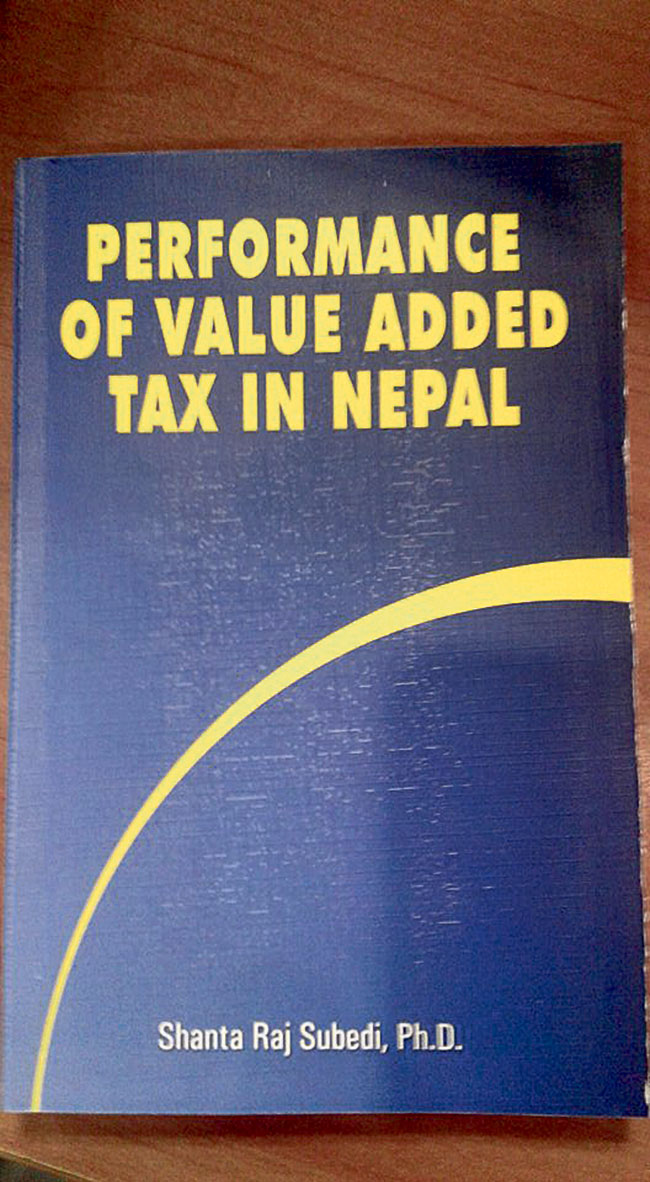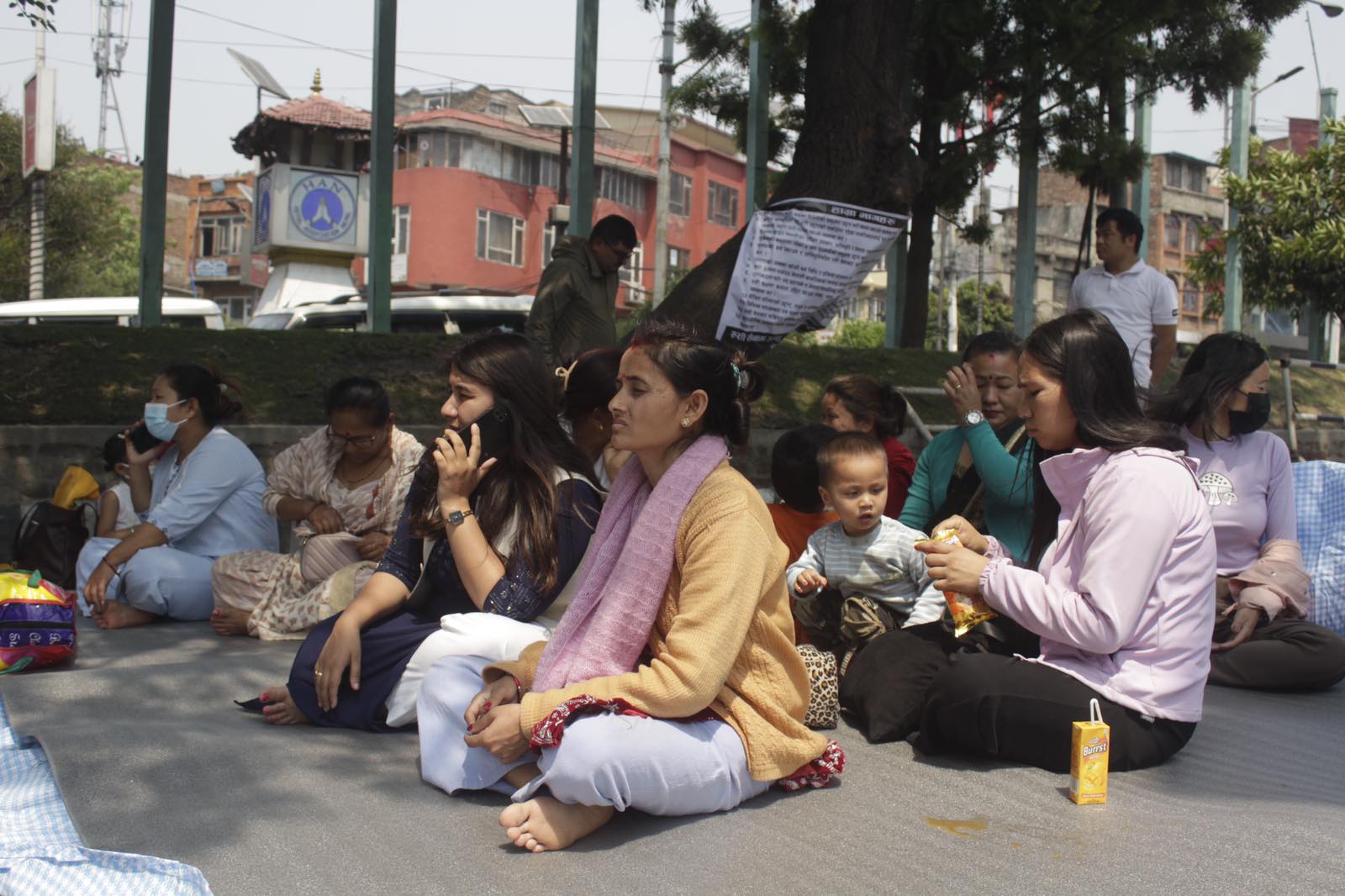
OR
Finance secretary claims 7.2 percent growth target gettable
Published On: October 10, 2017 08:06 AM NPT By: Republica | @RepublicaNepal
KATHMANDU, Oct 10: Finance Secretary Shanta Raj Sebedi has said that the growth target of 7.2 percent in this fiscal year is achievable, although the development partners have lowered the growth projection below 5 percent.
Speaking at a press meet at the ministry, Subedi said that this year’s flood in the tarai region has not damaged paddy to the extent claimed by the World Bank and the Asian Development Bank. Rather, he said, it has created alluvial soil indicating a further growth of paddy production.
The World Bank has projected Nepal’s economic growth to be 4.6 percent, while the ADB has projected growth to be 4.7 percent in this fiscal year. The bank has cited floods and landslides that have damaged paddy as well as other crops in the central and eastern tarai regions of the country.
“Ministry of Agricultural Development has projected an increment of paddy production by 2 million tons to a record high of 5.4 million tons this year,” added Subedi.
Subedi further assured that the possible improvement in development expenditure by the newly-elected local bodies, government’s additional expense of about Rs 30 billion for the upcoming elections, and spending by the candidates in the election will stimulate growth.
Nepal achieved economic growth of 7.5 percent in the last fiscal year -- the highest since FY 1993/94, on the account of low base of the previous fiscal year, rise in agricultural output due to one the best monsoons in recent years, improvement in industrial growth amid end of power cut, and strong revival of growth in tourist arrivals.
Subedi also stressed on the need for carrying out a study for coverage of all services and trades in counting of the 17 indicators toward the calculation of Gross Domestic Product.
“Several economic activities are not yet included in those 17 indicators indicating that our growth can be higher than what is currently measured. However, the growth is still below the minimum target of annual growth of 7.5 percent that is needed to achieve a middle-income country status by 2030, added Subedi.
Secretary Subedi, who is retiring next week, pointed out that the ministry was not able to improve the situation of development spending despite rigorous efforts, probably due to the attitude of taking things for granted on part of the line ministries carrying out development projects.
Development spending may boost the growth if spent as allocated. Nepal’s average spending has remained below 70 percent of the allocated budget for development projects. Subedi also said the failure to expedite spending in the infrastructure projects was something that he could not achieve during his tenure. Subedi, who worked at the Ministry of Finance for 15 years during his civil service tenure of 25 years, claimed success for tax assessment of Ncell and collection, endorsement of several laws including Bonus Act related to the economic sector, drafting the budget in the federal system and reducing the number of fraudulent exporters and importers to 10,000 from 40,000 by implementing mandatory Exim code.
Subedi however admitted that he could not discourage the trend of line agencies demanding programs and projects out of the annual budget, to the tune of Rs 200 billion, in the last two and half months of the fiscal year. The ministry had declared that such demands would not be entertained, Subedi added. He also admitted not being successful in resolving the issues related to several defunct public enterprises that are still giving away salaries to the jobless staff.
Ensuring efficiency in revenue collection so that enough resources are raised and managed for the three layers of the government under the federal structure are current challenges for the government, Subedi added.
‘Performance of Value Added Tax in Nepal’ launched
Minister for Finance Gyanendra Bahadur Karki launched the book ‘Performance of Value Added Tax in Nepal’ authored by Finance Secretary Shanta Raj Subedi on Monday.
 The book dedicated for analysis of VAT implementation in Nepal is an updated version of Subedi’s PhD Thesis from Tribhuvan University. Subedi was one of the implementing officers of VAT about twenty years ago when he was a revenue officer. The book has analyzed the situation of VAT implementation in the last two decades. It has also identified things to improve for making VAT really work for the country’s economic growth.
The book dedicated for analysis of VAT implementation in Nepal is an updated version of Subedi’s PhD Thesis from Tribhuvan University. Subedi was one of the implementing officers of VAT about twenty years ago when he was a revenue officer. The book has analyzed the situation of VAT implementation in the last two decades. It has also identified things to improve for making VAT really work for the country’s economic growth.
Speaking at the book launch program at the ministry, Revenue Secretary Shishir Dhungana said that Subedi was a strong campaigner of VAT and believes that the value added tax was directly proportionation to the county’s economic growth, that is, a growth in collection of VAT can contribute towards the economic growth of the country.
The VAT is like the General Services Tax (GST) that India has implemented recently, Dhungana said, adding that it was very practical in our context. The single rate of 13 percent of VAT was easy to implement and making the VAT added Dhungana.
Commenting on the book, Dhungana said that the book has not analyzed well on issues like VAT rebate, pros and cons of multiple VAT rates that the businesspeople have long been demanding. He added that such analysis would have also provided guidance for all.
VAT now contributes to about 33 percent of the total revenue collection. Subedi said that VAT can be a main source of revenue for the government, however it needed increased participation and also increased surveillance of the businesses and tax assessment of the business houses.
Though over 175,000 businesses are registered with VAT, a third are non-filers while another one-third have reported they have collected no VAT. Another 16 percent of the businesses have filed dubious VAT collection reports, according to Subedi.
You May Like This

China sets 2017 growth target of '6.5 percent or higher'
BEIJING, March 5: China's top economic official on Sunday set this year's growth target at about 6.5 percent, down from... Read More...

Target of 1.5 million foreign tourists by 2020 is gettable: Stakeholders
KATHMANDU, March 22: Newly-appointed Minister for Culture, Tourism and Civil Aviation, Rabindra Adhikari, has set two key targets for his tenure... Read More...

Remittance growth slows to 3.2 percent
KATHMANDU, Nov 19: Remittances inflow grew by only 3.2 percent in the first quarter of the Fiscal Year 2016/17 compared to... Read More...

Just In
- Sajha Yatayat cancels CEO appointment process for lack of candidates
- Govt padlocks Nepal Scouts’ property illegally occupied by NC lawmaker Deepak Khadka
- FWEAN meets with President Paudel to solicit support for women entrepreneurship
- Koshi provincial assembly passes resolution motion calling for special session by majority votes
- Court extends detention of Dipesh Pun after his failure to submit bail amount
- G Motors unveils Skywell Premium Luxury EV SUV with 620 km range
- Speaker Ghimire administers oath of office and Secrecy to JSP lawmaker Khan
- In Pictures: Families of Nepalis in Russian Army begin hunger strike















_20240419161455.jpg)

Leave A Comment